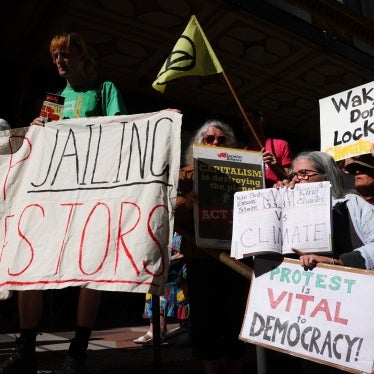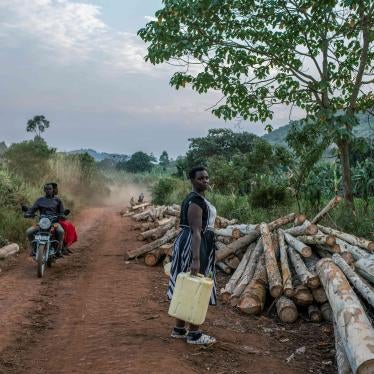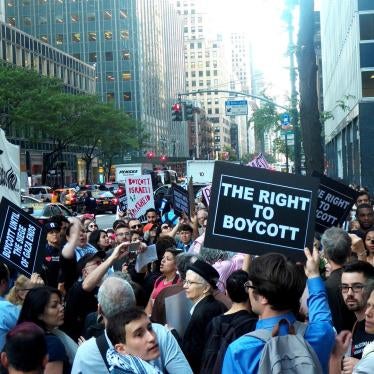Outgoing Nigerian President Goodluck Jonathan on Sunday asked the people of Nigeria to forgive whatever mistakes he might have made during his tenure. For some of the Nigerian children who died or are suffering from lead poisoning, this apology comes too late.
In 2012, Human Rights Watch documented how lead poisoning in Nigeria’s Zamfara State killed more than 400 children and left thousands more with permanent life-long disabilities. After pledging money to address the crisis, Jonathan waited months to act, as authorization to release the money sat on his desk awaiting his signature.
Last week, a similar – and avoidable – tragedy struck: Nigerian health officials reported 28 children were killed and another 37 got sick from drinking water poisoned by lead in an area of artisanal and small-scale gold mining sites in Niger state, in northwestern Nigeria. Many more children in the area are likely to have been exposed and suffer a wide range of insidious health effects, as no level of lead exposure is considered safe. Lead exposure is particularly harmful to young children, whose system is still developing and especially vulnerable to lead.
In both cases, the lead poisoning was associated with small-scale gold mining, in which villagers use simple tools to crush ore and mine gold. Lead occurs naturally in ore, but ore in Nigeria has unusually high levels of lead. When people process the ore within their home compounds, lead dust settles on the ground where children play, on clothes or furniture.
How could this latest tragedy have been avoided? In 2012, Occupational Knowledge International conducted an investigation in various Nigerian mining regions and found the highest levels in the area of this latest outbreak. The organization recommended blood lead testing of all children and workers at two of the sites they visited. They also suggested that a survey be done in additional mining areas around Niger State, and that interim measures be taken to reduce exposure to lead while long-term plans for clean-up were developed.
Reports by the Centers for Disease Control, the Blacksmith Institute, and the Environmental Law Institute have also urged Nigeria to conduct awareness campaigns, promote safer artisanal mining practices, and reduce the exposure of children.
Despite these recommendations, the Nigerian authorities have yet to fully recognize the extent of the problem they are facing.
The issue of lead poisoning is not going away on its own. If it’s ignored, there will be another tragic episode, and then another. The only question is if Nigeria’s president-elect, Muhammadu Buhari, will act more expeditiously.








